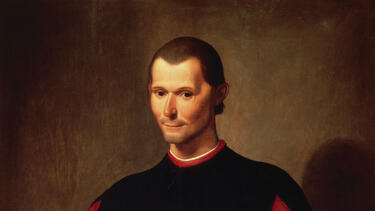Management in Practice
Do you need more power?
Does power corrupt? Stanford professor Jeffrey Pfeffer suggests that power is instead a tool that you should make use of to advance your career and safeguard your interests against unfeeling organizations and unfair leaders.
Do leaders need to be authentic?
Roger Brown is the president of the Berklee College of Music. He previously cofounded Bright Horizons, a childcare provider that grew into a billion-dollar, publicly traded company, and ran relief operations in Asia and Africa. He talks about lessons he’s learned from these leadership experiences—including the importance of authenticity and the value of a little music.
What kind of leaders do we need now?
Rosabeth M. Kanter discusses her vision of the advanced leadership needed to address the unique challenges of the complex global environment of the 21st century.
What Can You Learn from Machiavelli?
“It is necessary for a prince wishing to hold his own to know how to do wrong.” Advice like this, offered by Niccolò Machiavelli in The Prince, made its author’s name synonymous with the ruthless use of power. But Robert Harrison suggests you should be careful before looking for leadership lessons in The Prince.

What do leaders need to understand about diversity?
In globalized, multicultural organizations, leaders need to learn to create value out of diversity.
Do we listen to opinion leaders?
Are there leaders in everyday life? A long body of literature argues that a small number of individuals have an outsize influence on what the rest of us buy, wear, and consume. But marketing professionals and scholars have been debating how to make use of these opinion leaders.
How do you lead when lives are on the line?
Combat leadership involves making countless decisions, with limited information, shifting variables, and extreme time constraints. Colonel Rich Morales ’99 and soldiers from his battalion describe their 15-month deployment in Iraq.
Q8 Alumni Forum
Yale SOM alumni weigh in on the question "Who needs leaders?"
Are our institutions up to the job?
The massive problems associated with sustainability, from climate change to resource preservation, require coordinated, society-wide responses. Nobel laureate Elinor Ostrom argues for the importance of giving local institutions enough power to better manage common resources—though it’s not easy.
What does sustainability mean at Yale?
Yale University is striving to integrate sustainability into the institution's operations, as well as its educational and research functions. Julie Newman, the director of Yale's office of sustainability, discusses the efforts at Yale and across higher education.